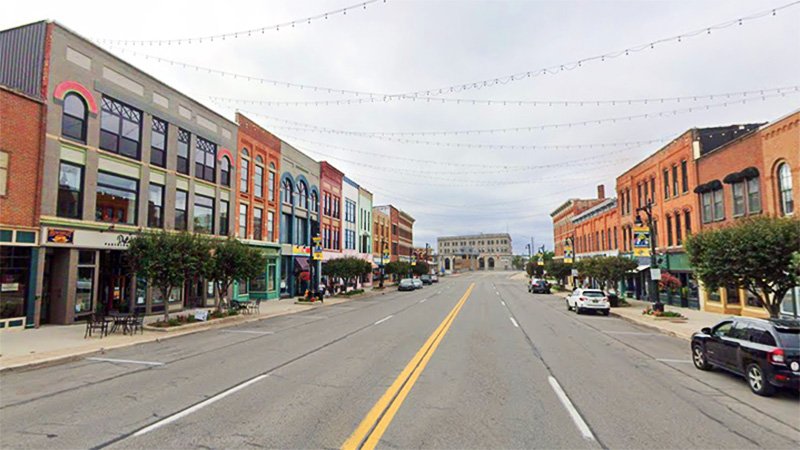City engineers rely on faulty logic and misrepresentations to maintain the status quo. This was made blatantly clear in a recent letter from the City Engineers Association of Minnesota (CEAM) — and it’s why a growing number of engineers are breaking from the party line to support reform. Here are CEAM’s top four arguments against parking reform and why they’re wrong.
Read MorePublic bathrooms are an essential component of people-centered places. In addition to maintaining public health, they encourage foot traffic and community, as people are more likely to frequent an area when they know bathrooms will be available — especially if they have children or medical conditions.
Read MoreHabitat for Humanity offers a wide range of programs to help people become homeowners, giving the organization a unique perspective on the housing crisis. Strong Towns sat down with two representatives to learn about this perspective, including how Habitat is handling high building costs and why Habitat owners participate in the construction of their homes.
Read MoreWith work patterns shifting as technology advances, retrofitting suburban office buildings has become increasingly important to developers and planners. Here are five ways you can make your office building more appealing and resilient.
Read MoreLast week in Colorado, advocates for people-centered cities and incremental housing pulled off a massive win, sending a bill package full of land-use reforms to be signed into state law. Here’s how they did it.
Read MoreThe lament, “There’s nothing to do here,” might sound like teenage grumbling, but there may be more wisdom to it than meets the ear. Maybe we should look at our cities through the lens of organic social activities, both because they're enjoyable and because it gives us a chance to reconsider our values and the relationship between our design choices and our community’s social life.
Read MoreSocial media tells us that snarky, callous remarks get the most attention and have the biggest impact. But when Tristan Cleveland sat down for a real conversation with his opponents, he realized that urbanists must approach people with empathy and understanding. That's the only way to change minds and create real change.
Read MoreThe Messy City is a podcast that discusses urban planning and design issues. Its host, Kevin Klinkenberg, recently invited Strong Towns President Chuck Marohn to appear on an episode. Up for discussion: Chuck’s new book, sports stadiums, and Disney World.
Read MoreDo you know what it's like to have your housing be dependent on a country club membership that you can't afford? Renters across the United States do, as they're forced to pay for amenities like private parking spaces or pool access — even if they never use them.
Read MoreVison Zero is supposed to represent a commitment to achieving zero traffic deaths, but it often devolves into empty platitudes — even when public officials genuinely support it. That’s because they’re looking for solutions in the wrong place. Instead of blaming individual drivers, officials need to look at the root cause of most traffic deaths: the contradictory design of city streets.
Read MoreWhen COVID-19 put her career on pause, opera singer Ally Smither found a new passion: fighting highway expansion.
Read MoreHitsville U.S.A. is known for producing artists, recordings and a distinctive Detroit sound, but it also represents an important element of a strong city: mixed-use development. If Detroit hadn’t let Berry Gordy turn the first floor of his home into a recording studio, Motown Records might not exist today.
Read MoreBrian Boland is the founder of Bridge Forward Cincinnati, an advocacy group working to reclaim 19 acres of city land from urban highways by changing the design of the Brent Spence Corridor Project.
Read MoreIt’s natural to feel grief when local officials ignore calls to make your city a stronger and safer place. But while the grief is real, the changes your advocacy inspires are real too.
Read MoreTrying to decide on your next smallest step? Chances are, your city already has systems in place to address infrastructure concerns. Strong Towns member Danny Williams demonstrates how you can use those systems to produce positive change.
Read MoreSarasota County, Florida, is planning to use hundreds of millions of dollars to subsidize housing. But this money isn’t going toward low-income housing — it’s going toward road construction for gated communities.
Read MoreAn initiative that encourages people to use a bike instead of a car seems like a good thing, but does National Bike to Work Day actually encourage bikeability?
Read MoreEconomic productivity, cost-effectiveness and safety: stroads fail at all three. Advocates in Port Huron, Michigan, are working to make their city recognize that, so they can turn the dangerous Huron Avenue into a thriving community center.
Read MoreIncremental development is a low-risk, high-reward method of building a strong town. Here’s some do’s and don’ts to get you started.
Read MoreSpecial assessments are a way local governments can fund projects that will add value to homeowners’ property. When used to fund regular maintenance, though, they’re self-serving, irresponsible and unfairly target the poorest members of the community. It’s time to demand better.
Read More



















